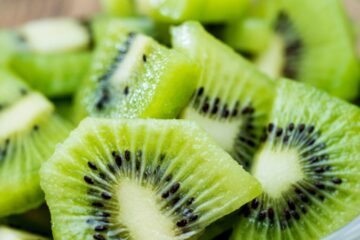Here is What Expert State, About Does Drinking Alcohol Can Make People Attain Weight?

All that you should know before your next party time.
In case you’re attempting to keep a solid weight, the initial step is to see what you’re eating routinely and survey whether it assists you with meeting your healthful objectives. However, it’s not just with regards to food. What you drink is a major factor also, and that incorporates the lager you may bust open throughout a mid year picnic or the container of wine you share with a companion over supper.
Weight is absolutely not the most important thing in the world with regards to wellbeing, however on the off chance that you figure liquor might be becoming an integral factor with regards to yours, there are a couple of things you might need to think about liquor admission and body structure, directly from specialists.
Liquor holds your body back from consuming fat
You may have heard the expression “void calories” utilized corresponding to liquor. This implies your body can change over the calories from liquor for energy, however, those calories contain almost no advantageous supplements or minerals, Krissy Maurin, MS, ACT, lead health facilitator at Providence St. Joseph Hospital’s Wellness Center in Orange County, California, tells Health.
“Liquor isn’t dealt with like different supplements in food; truth be told, the stomach-related framework strives to kill it from the body, focusing on the end of liquor in front of any remaining supplements,” Maurin says. “If you somehow managed to have a dinner with your cocktail, the supplement take-up from the feast would be extraordinarily diminished because of the body endeavoring to kill the liquor from the body.”
Ordinarily, carbs are the body’s best option to process for energy from food, however that totally changes when liquor is burned through. “The body perceives liquor as harmful and closes down its capacity to get to any remaining put away macronutrients—carbs, proteins, and fast—to use and consume off the liquor first,” Maurin clarifies.
However you might have heard the expression “girth” previously, Maurin says the conviction that cocktails cause expanded fat stores around the stomach region really isn’t precise. Indeed, a tiny level of the calories you drink from liquor itself is transformed into fat. “The primary impact of liquor is to diminish the measure of fat your body can consume for energy,” she clarifies. “You are essentially closing down your digestion, which then, at that point prompts weight to acquire.”
It’s high in calories
By and large, liquor is high in calories. “Protein and starches have 4 calories for every gram, fat has 9, however, liquor has 7,” Ginger Hultin MS, RDN, and proprietor of ChampagneNutrition in Seattle tells Health. “At the point when you see blenders like juices, pop, syrups, cream, whipped cream, or coconut milk, the calories in a cocktail can be extremely high.”
Talking about syrups and whipped cream, a few mixed drinks can be guilefully high in calories. “A few margaritas, daiquiris, and pina Coladas can be exceptionally high in added sugar and immersed fat,” Hultin adds.
Assuming you need to drink liquor and are remembering your weight, Hultin prescribes adhering to bring down calorie choices. Her suggestions incorporate brews with a lower ABV (liquor by volume), like Pilsners or Lagers (which are around 100 calories for every jug, contrasted with 150 calories in a “customary” lager), and dry red or white wine (which are around 120 calories for each glass). “Focus on 4 to 5% ABV in lager and 10 to 12% in wine,” Hultin says.
On the off chance that brew and wine don’t get your taste buds going, spirits blended in with water or soft drink water can likewise be a low-cal choice, similar to vodka and pop, which contains 133 calories for every standard 225-gram glass.
It screws with your chemicals
Chemicals assume an urgent part in the solid working of the relative multitude of the body’s tissues and organs. “At the point when the chemical situation is working appropriately, the perfect measure of chemical is delivered at undoubtedly the perfect time, and the tissues of the body precisely react to those messages,” clarifies Maurin.
Drinking liquor can impede the elements of the organs that discharge chemicals and the elements of the tissues designated by those chemicals, which can bring about a scope of medical problems. “Liquor utilization causes expanded levels of the chemical cortisol, which has been connected to weight acquire,” says Maurin.
Researchers are as yet attempting to sort out precisely how much liquor causes this expansion in cortisol. “There’s no highly contrasting answer here; everybody is exceptional in how their bodies respond and separate liquor,” Maurin clarifies. She noticed that many examinations on this subject incorporate an “inebriated” study bunch as well as liquor subordinate people, who might require a bigger measure of liquor to be influenced.
Liquor makes it harder to get quality rest
It’s not surprising for individuals to utilize liquor as a tranquilizer. “Since liquor has narcotic impacts that can instigate sensations of unwinding and drowsiness, it can assist a person with loosening up and get agreed to bed,” clarifies Maurin. In any case, she brings up that utilization of liquor – particularly in abundance – has been connected to helpless rest quality and span. “Indeed, people who are subject to liquor normally experience sleeping disorder manifestations,” she says.
Once more, there’s a connection with chemicals—for this situation, melatonin, which has for quite some time been related to the control of the rest wake cycle. “Many individuals discover their rest is very disturbed subsequent to drinking liquor, and lack of sleep is unequivocally connected to weight acquire over the long haul,” Hultin says.
It can cause you to feel hungry
After a few beverages, the munchies regularly kick in—which means you’re bound to snatch whatever fast and simple nibble without truly mulling over everything.
Those food cravings are brought about by two or three distinct things, Hultin clarifies. Above all else, liquor can cause glucose levels to plunge. “This can trigger appetite signs and in some cases longings for sugar-rich food sources,” she says.
Additionally, analysts have discovered that liquor influences a space of the cerebrum that controls craving and this can cause extreme appetite, particularly the day in the wake of drinking. One examination found that nerve cells in the cerebrum’s nerve center that are for the most part enacted by genuine starvation can be animated by liquor. Those extraordinary appetite signs can make you go after unhealthy food varieties, similar to pizza and burgers.
There’s additionally proof that liquor can impact chemicals connected to feeling full, for example, leptin, a chemical that smothers hunger, and glucagon-like peptide-1 (GLP-1), which represses food admission. One examination tracked down that the ingestion of “moderate” measures of liquor restrains leptin emission in solid subjects.
“This is matched with the way that liquor brings down hindrances, which means many individuals go after food sources that they’d ordinarily stay away from, like those high in fat or sodium,” Hultin adds.
Keep in mind, the Dietary Guidelines for Americans, 2020–2025, suggest that on the off chance that you drink liquor, do it with some restraint—that is close to one beverage daily for ladies and close to two beverages per day for men. Inordinate liquor utilization has been connected to an expanded danger of malignancy, coronary illness, psychological maladjustment, and dementia, per the Centers for Disease Control and Prevention (CDC).


